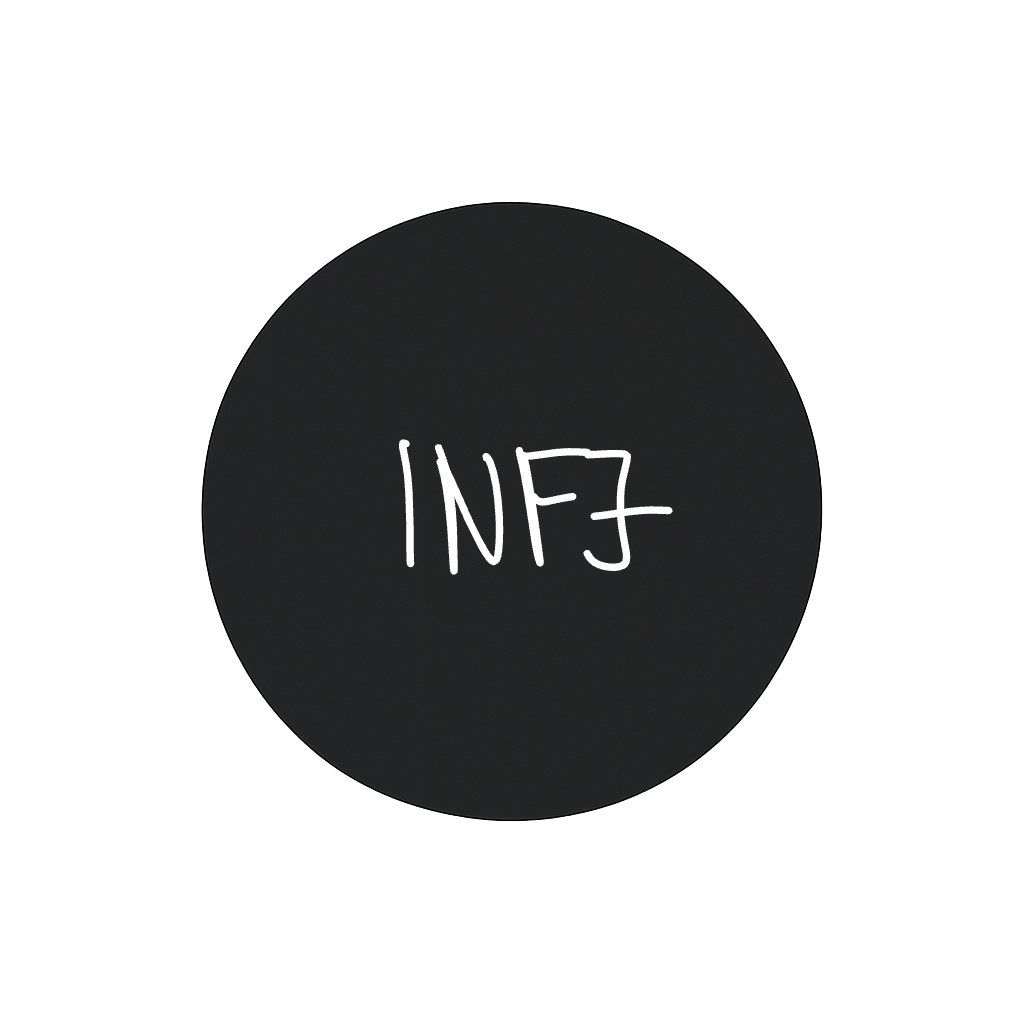INFJs are often described as rare, intense, and hard to fully understand—even by themselves. This guide breaks the mystique down into clear patterns you can actually see in daily life.
Core lens
- Sees underlying patterns (Ni):
Looks past surface details to “what it really means,” where it’s heading, and what connects to what. - Emotionally tracking the room (Fe):
Highly aware of others’ feelings, tone, tension, unspoken needs; wants harmony but also authenticity. - Privately analytical (Ti):
Internally picks things apart for coherence; can be picky about wording, meaning, and contradictions. - Finely tuned senses in bursts (Se):
Noticing details strongly when engaged (art, aesthetics, movement), but also overstimulated or drained by chaos.
Personality feel
- Intense but contained:
Deep inner world, but guarded; often warm and approachable, yet feels “distant” or “hard to really know.” - Idealistic with receipts:
Holds strong principles, wants things to be meaningful, humane, fair, and notices all the ways reality fails that. - Stubborn core:
Soft exterior, but once their inner conviction locks in, very hard to move. - Long-term focused:
Thinks in arcs, life themes, trajectories; cares less about “what’s popular now” and more about “where this leads.”
Social style
- Selective connection:
A few close people prefer depth over crowds; small talk is tolerable only if it leads somewhere real. - Natural mirror:
Often reflects others’ emotions, language, and needs; people feel seen and open up quickly. - Boundary conflict:
Struggles to say no, then burns out; can disappear to reset.
Work & creativity
- Drawn to meaning-heavy work:
Coaching, psychology, writing, design, strategy, social impact, teaching, spirituality, systems thinking. - Big-picture + human factor:
Good at forecasting consequences and sensing how decisions affect people. - Quiet leadership:
Influences through insight, empathy, and vision rather than dominance.
Inner struggles
- Chronic self-pressure:
Holds self to high moral/competence standards; harsh inner critic. - Over-absorbing others:
Takes on emotions; confusion: “What do I feel vs what’s in the room?” - Perfectionism + procrastination:
Wants the “right” path or “aligned” project, can delay action. - Mistrust of being seen incorrectly:
Hates being simplified, misread, or boxed in; may share less to avoid it.
***
